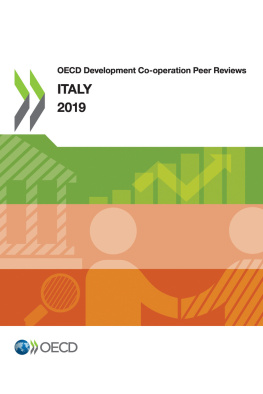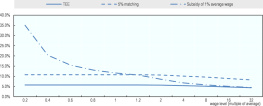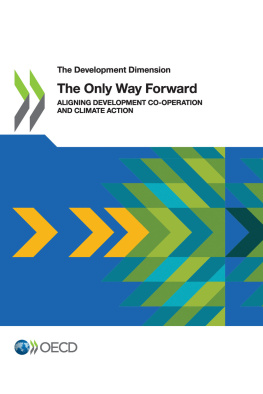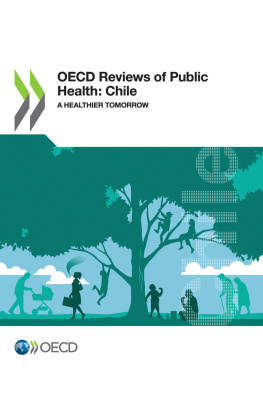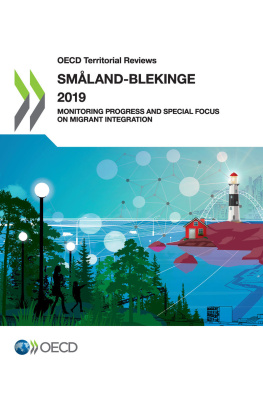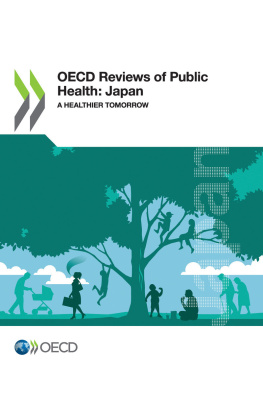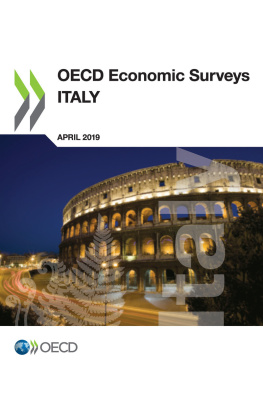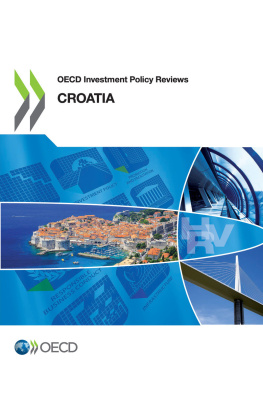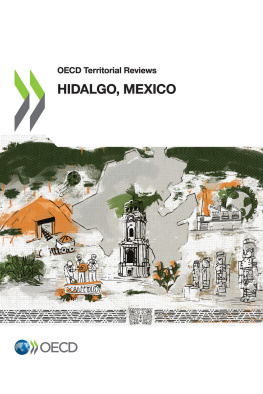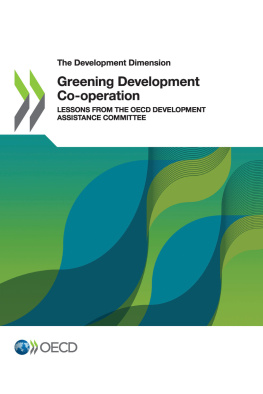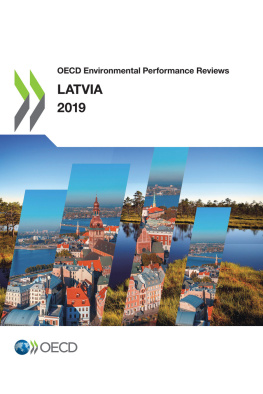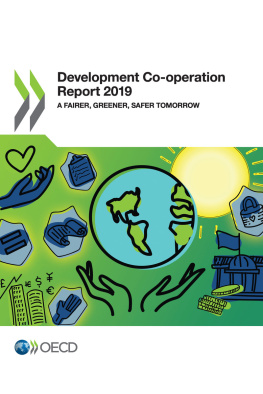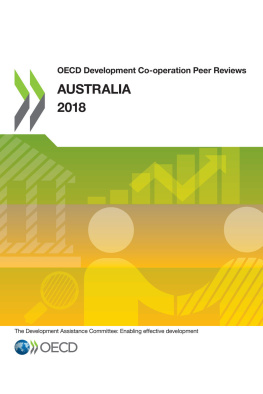OECD - OECD Development Co-operation Peer Reviews: Italy 2019
Here you can read online OECD - OECD Development Co-operation Peer Reviews: Italy 2019 full text of the book (entire story) in english for free. Download pdf and epub, get meaning, cover and reviews about this ebook. year: 2019, publisher: OECD Publishing, genre: Politics. Description of the work, (preface) as well as reviews are available. Best literature library LitArk.com created for fans of good reading and offers a wide selection of genres:
Romance novel
Science fiction
Adventure
Detective
Science
History
Home and family
Prose
Art
Politics
Computer
Non-fiction
Religion
Business
Children
Humor
Choose a favorite category and find really read worthwhile books. Enjoy immersion in the world of imagination, feel the emotions of the characters or learn something new for yourself, make an fascinating discovery.
OECD Development Co-operation Peer Reviews: Italy 2019: summary, description and annotation
We offer to read an annotation, description, summary or preface (depends on what the author of the book "OECD Development Co-operation Peer Reviews: Italy 2019" wrote himself). If you haven't found the necessary information about the book — write in the comments, we will try to find it.
OECD: author's other books
Who wrote OECD Development Co-operation Peer Reviews: Italy 2019? Find out the surname, the name of the author of the book and a list of all author's works by series.
OECD Development Co-operation Peer Reviews: Italy 2019 — read online for free the complete book (whole text) full work
Below is the text of the book, divided by pages. System saving the place of the last page read, allows you to conveniently read the book "OECD Development Co-operation Peer Reviews: Italy 2019" online for free, without having to search again every time where you left off. Put a bookmark, and you can go to the page where you finished reading at any time.
Font size:
Interval:
Bookmark:
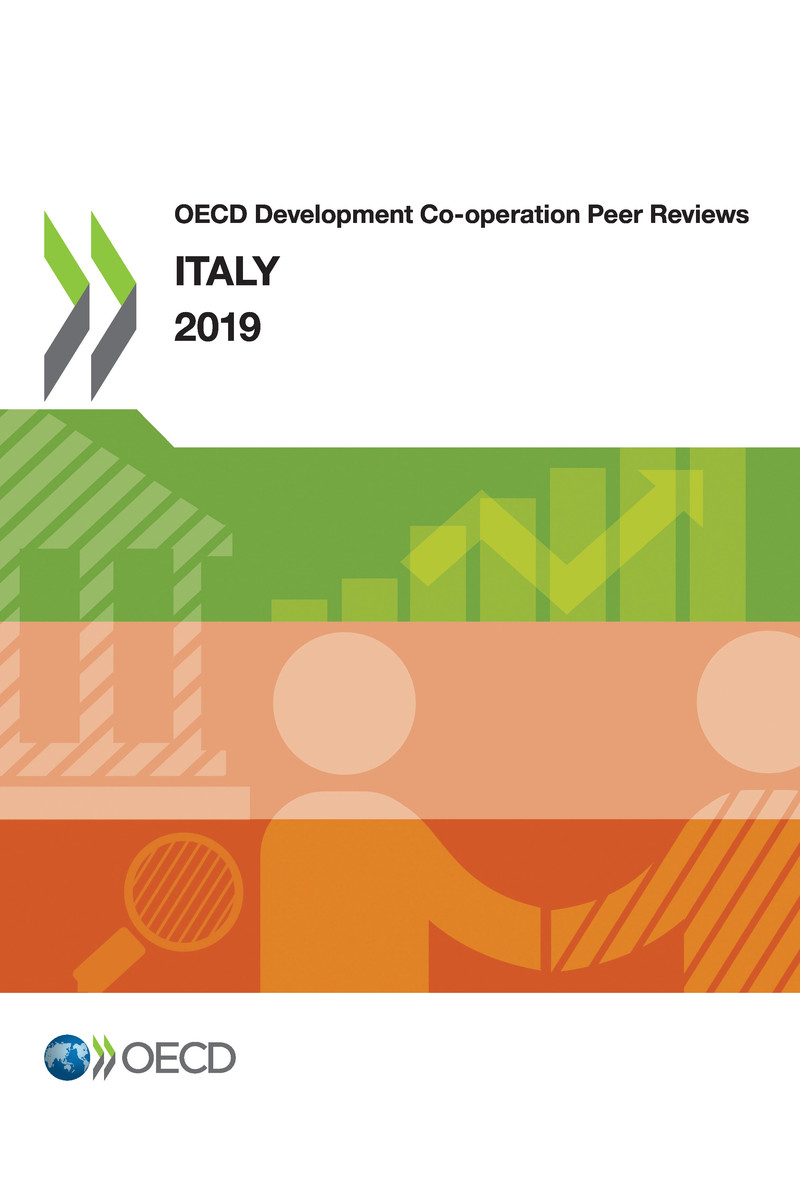
OECD (2019), OECD Development Co-operation Peer Reviews: Italy 2019 , OECD Development Co-operation Peer Reviews, OECD Publishing, Paris, https://doi.org/10.1787/b1874a7a-en .
The OECD Development Assistance Committee (DAC) conducts periodic reviews of the individual development co-operation efforts of DAC members. The policies and programmes of each member are critically examined approximately once every five to six years, with five members examined annually. The OECD Development Co-operation Directorate provides analytical support, and develops and maintains, in close consultation with the Committee, the methodology and analytical framework known as the Reference Guide within which the peer reviews are undertaken.
The objectives of DAC peer reviews are to improve the quality and effectiveness of development co-operation policies and systems, and to promote good development partnerships for better impact on poverty reduction and sustainable development in developing countries. DAC peer reviews assess the performance of a given member, not just that of its development co-operation agency, and examine both policy and implementation. They take an integrated, system-wide perspective on the development co-operation and humanitarian assistance activities of the member under review.
The peer review is prepared by a team, consisting of representatives of the Secretariat working with officials from two DAC members who are designated as examiners. The country under review provides a memorandum setting out the main developments in its policies and programmes. Then the Secretariat and the examiners visit the capital to interview officials, parliamentarians, as well as civil society and non-governmental organisations representatives in the donor country to obtain a first-hand insight into current issues surrounding the development co-operation efforts of the member concerned. Field visits assess how members are implementing the major DAC policies, principles and concerns, and review operations in recipient countries, particularly with regard to poverty reduction, sustainability, gender equality and other aspects of participatory development, and local aid co-ordination. During the field visit, the team meets with representatives of the partner countrys administration, parliamentarians, civil society and other development partners.
The Secretariat then prepares a draft report on the members development co-operation which is the basis for the DAC review meeting at the OECD. At this meeting, senior officials from the member under review respond to questions formulated by the Committee in association with the examiners.
This review containing both the main findings and recommendations of the DAC and the analytical report of the Secretariat was prepared with examiners from New Zealand (Ginny Chapman and Liz Paton) and Spain (Javier Jimnez de Gregorio and Patricia Santa Olalla Peralta) for the peer review of Italy on 14 October 2019. The Secretariat team consisted of Emily Bosch, Santhosh Persaud, and Cyprien Fabre. Mari Laikre and Autumn Lynch provided logistical assistance to the review, and formatted and produced the report. The report was prepared under the supervision of Rahul Malhotra. Among other things, the review looks at how Italy has maintained its commitment to development co-operation during the economic and migration crises, and suggests that, as circumstances improve, Italy might build a new vision and create a focused, whole-of-government approach to development co-operation, and put in place the structures and systems that will enable it to achieve this vision.
Signs used:
Font size:
Interval:
Bookmark:
Similar books «OECD Development Co-operation Peer Reviews: Italy 2019»
Look at similar books to OECD Development Co-operation Peer Reviews: Italy 2019. We have selected literature similar in name and meaning in the hope of providing readers with more options to find new, interesting, not yet read works.
Discussion, reviews of the book OECD Development Co-operation Peer Reviews: Italy 2019 and just readers' own opinions. Leave your comments, write what you think about the work, its meaning or the main characters. Specify what exactly you liked and what you didn't like, and why you think so.

